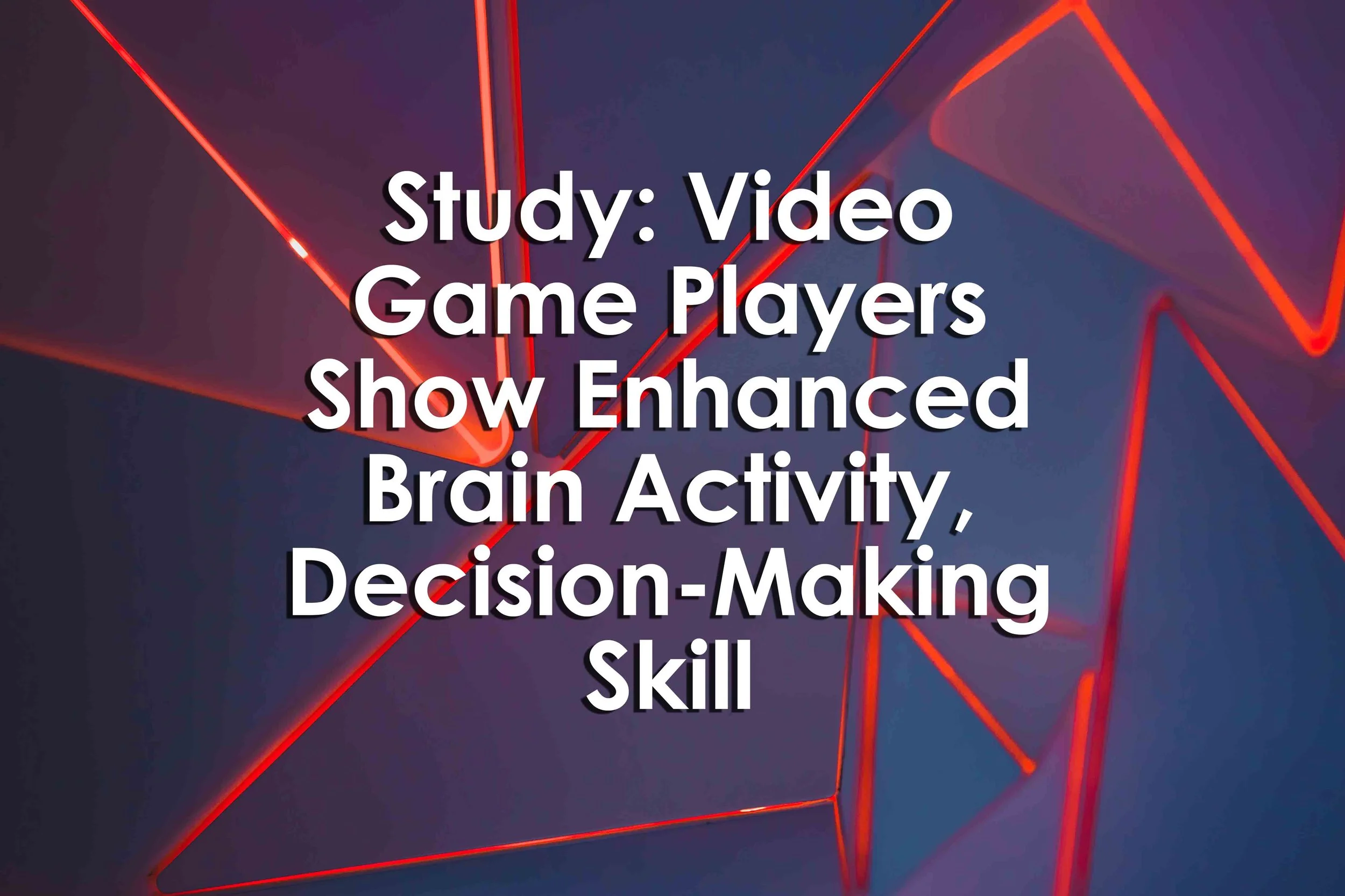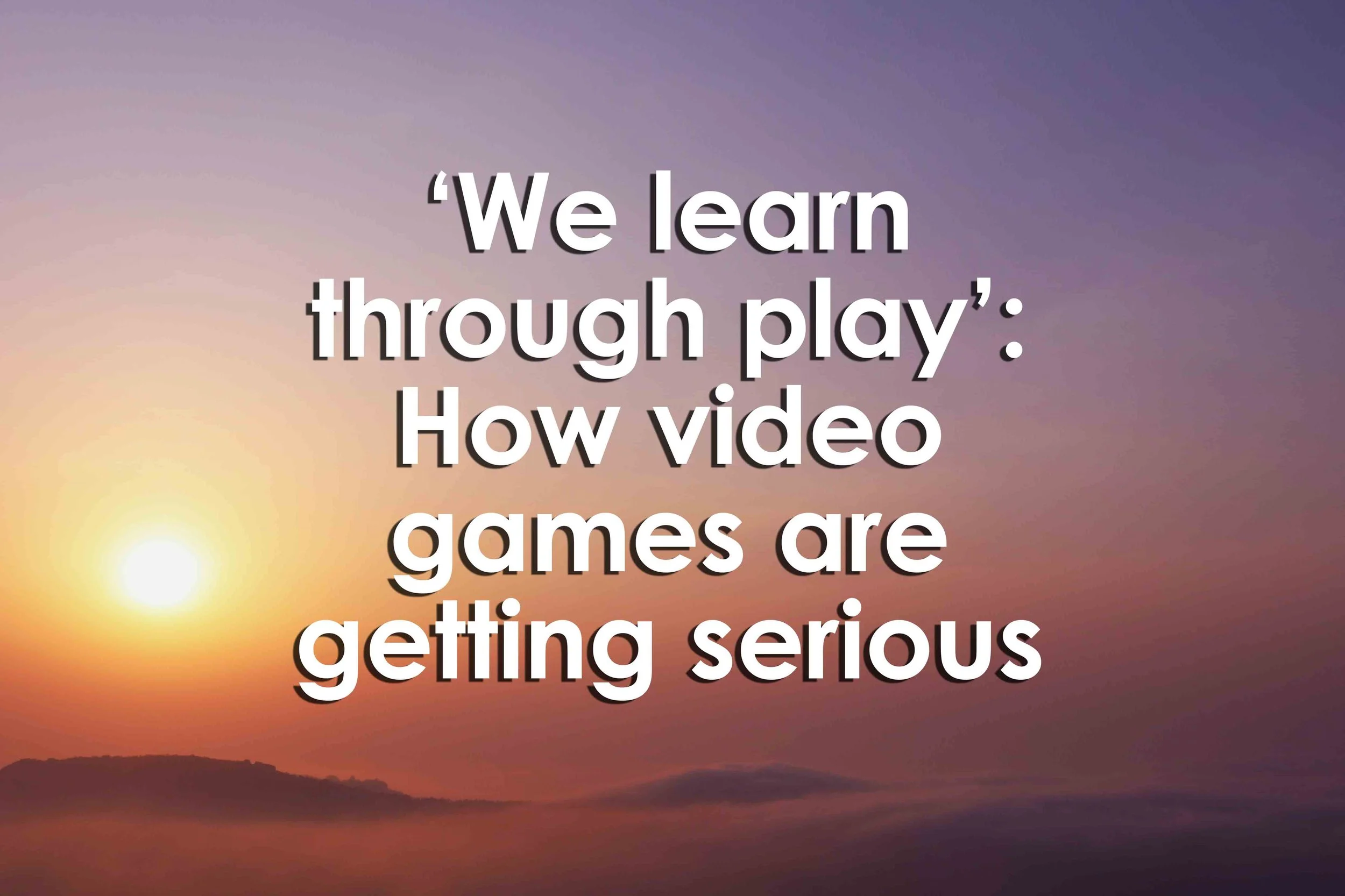Frequent players of video games show superior sensorimotor decision-making skills and enhanced activity in key regions of the brain as compared to non-players, according to a recent study by Georgia State University researchers.
Read MoreNews
Researchers have linked spending more time playing video games with a boost in intelligence in children, which goes some way to contradicting the narrative that gaming is bad for young minds. On average, the youngsters reported spending 2.5 hours a day watching TV or online videos, 1 hour playing video games, and half an hour socializing over the internet.
Read MoreFor a long time, the prevailing thought about video games is they rot people's minds and have the potential to promote violence, but a new study, published in the Journal of Scientific Reports, shows video games might give kids an intellectual boost.
Read MoreStudies have previously shown that playing digital games is associated with a wide range of benefits for children, even in those who are very young. Certain types of digital game play can enhance learning and help develop digital skills.
Read MoreObstacles: Use it, avoid it Bad guys: Kill it, avoid it So, when Mario is faced with an obstacle, he can try to break - which might yield goodies or just clear his path. If the obstacle is in my way, break it, thus using it, embracing its usefulness to open a new path.
Read MoreAmidst all the bustling speculation surrounding the potential of the metaverse, along with COVID-19 restrictions, video games have skyrocketed in popularity. The term 'gamification' has become a hot topic in the education landscape as developers attempt to tackle how we ignite a similar level of engagement seen in normal video games, in learning.
Read MoreResearchers have linked spending more time playing video games with a boost in intelligence in children, which goes some way to contradicting the narrative that gaming is bad for young minds. The researchers looked at screen time records for 9,855 kids in the ABCD Study, all in the US and aged 9 or 10.
Read MoreVideo games can amuse or distract, sometimes inspire, which means they engage the brain with tasks. So some researchers are hoping video games could help treat cognitive disorders from depression and ADHD to mental decline from aging.
Read MoreThe thing I'd rather be doing is hopping on the PlayStation console and playing some video games with my friends. From non-gamers, there's a known perception of negativity surrounding video games and how they affect academic status and brain stimulation.
Read MoreYou may have seen an article in The Atlantic entitled "Kids Are Learning History From Video Games Now." Its subtitle, "More students are being exposed to historical narratives through game play-but what exactly are they being taught?" raises questions that academics need to ask as we teach a generation that has grown up with video games.
Read MoreYou may have seen an article in The Atlantic entitled "Kids Are Learning History From Video Games Now." Its subtitle, "More students are being exposed to historical narratives through game play-but what exactly are they being taught?" raises questions that academics need to ask as we teach a generation that has grown up with video games.
Read MoreVideo games as a treatment for depression? Unheard of, especially in the elderly, whose brains have gone through normal deterioration as a part of aging. Researchers aren't always keen to divulge their findings, especially if it would reveal game mechanics that could be copied. Without outside verification, it's hard to tell if so-called medical video games have merit.
Read MoreAustralian computer developers are creating a new generation of "Serious games" that go beyond Mario and Minecraft, providing public health messaging, mental health support and awareness campaigns.
Read MoreAnything that can call attention to periods or histories that most people wouldn't otherwise come across does a very real service, UC's Marion Kruse says in an article in The Atlantic. The article focuses on the rise in popularity of video gaming, specifically games such as Europa Universalis which is by Paradox Interactive, a Swedish company.
Read MoreFirst, their influence is hard to track: Teachers may not even notice that the student asking why the Ottomans didn't colonize America or what happened to Burgundy may have a view of history that was molded by Paradox games.
Read MoreResearchers at the University of Missouri are using $12 million in grants from the U.S. Department of Education to harness game-based learning and speech recognition tools to teach science and literacy.
Read MoreIn partnership with UKIE, the British gaming trade association, the game developer wants to introduce Discovery Tour to 52 schools across the UK.But this isn't the first time someone has deployed a video game for education. Whether it's the untamed west of Red Dead Redemption 2, the wind-fed fields of 13th-century Tsushima, or the bustle of Renaissance Florence, games are becoming more photorealistic and increasingly rely on historical settings for their narratives.
Read MoreWe are not computer game experts or designers: we are historians who based the game on our collaborative research into Aberdeen's rich historical archive of medieval burgh records. Setting up this experiment in merging historical records with digital storytelling, we enlisted the help of a video game designer and an artist.
Read MoreMinecraft: Education Edition is getting a world about cyber safety ahead of Safer Internet Day. In its latest update, Minecraft: Education Edition will tackle cyber security with CyberSafe: Home Sweet Hmm, which will teach children about protecting their safety on the internet.
Read MoreWith this in mind, a video game was designed that combines action video games with mini games that train different executive functions, such as working memory, inhibition and cognitive flexibility, functions that are called upon during reading.
Read More




















